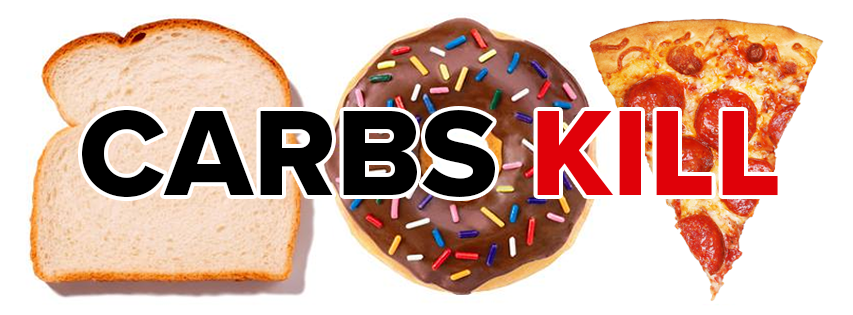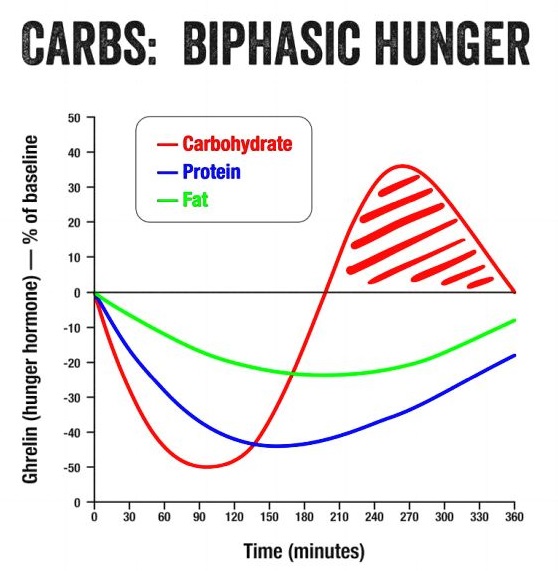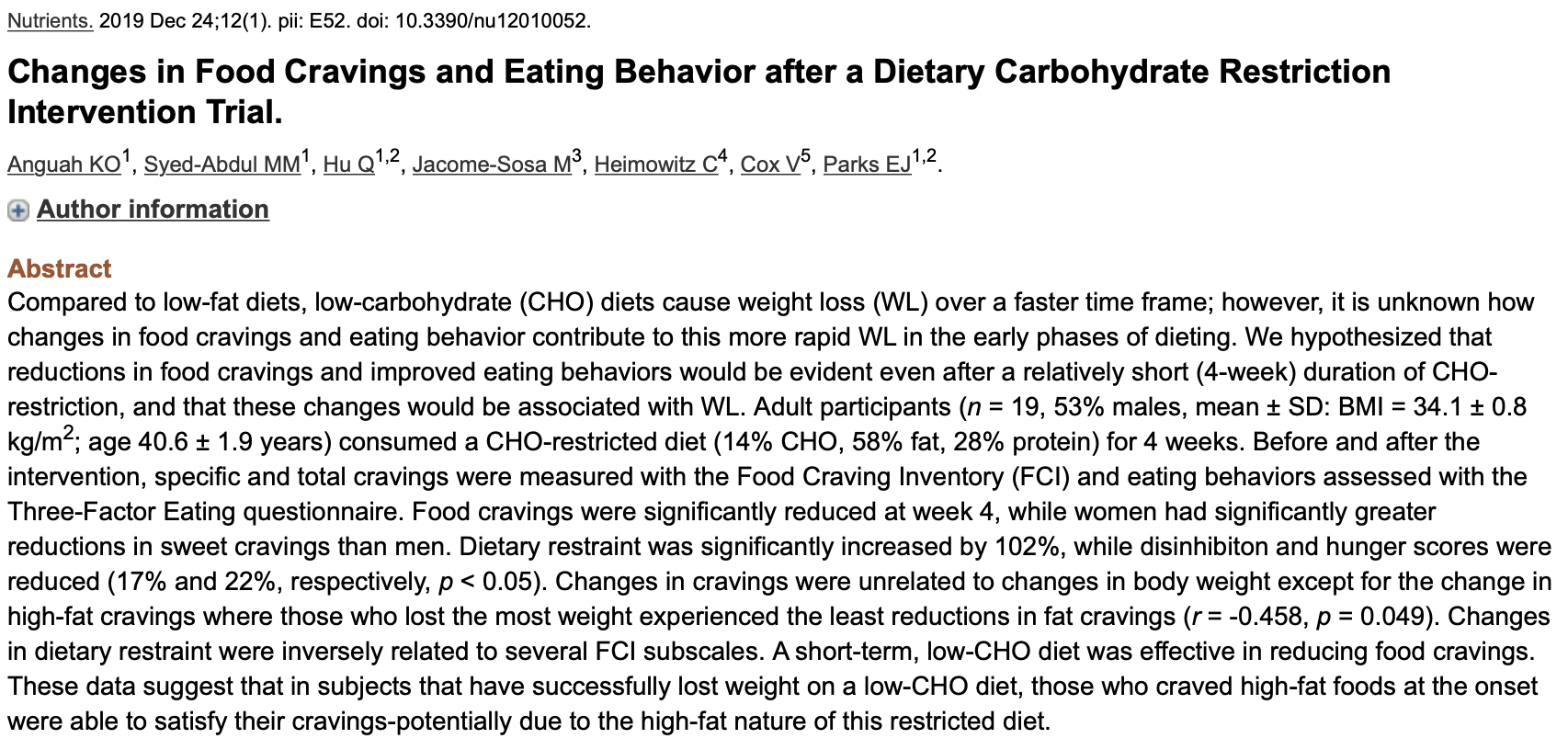
The black list of fast carbs to be learned by heart:
Farinaceous foods (bread, pasta, perogies, dumplings and whatever else containing grain/cereals - including all dishes fried in flour or breadcrumbs), underground starchy vegetables (potatoes, beets, carrots), rice (including gluten-free bread made of rice flour), corn, beans, peas, porridge (including buckwheat and oatmeal), and naturally the enemy number one, sugar in all its incarnations including sweets, fruits, juices (Seriously, Juice Is Not Healthy) and honey (Healthy? No, honey can be WORSE for you than sugar).
Check nutrition facts of everything you buy!!!
Sugar can be added where you least expect to see it, e.g. in pickled dills, processed meat (including sausages and bacon), and dressings (including ketchup and mayonnaise). It seems to be a stupid joke, but it's true - sometimes sugar is added even to... salt!
Hundred names of the devil
Sugar can (and will!) appear under different names like juice, syrup, nectar, honey, caramel, dextrin, maltodextrin, treacle, agave, molasses, muscovado, maltol, mannitol, sorghum, demarrara, panocha, amisake, many words that end in "ose" (glucose, fructose, sucrose, saccharose, galactose, xylose, maltose, dextrose, d-ribose, mannose), and tens more words, by using which the food industry tries to fool you and make you think the product doesn't contain sugar. But don't learn all these words - instead, use this simple rule:
If the ingredients list is long, or contains words you don't understand, then DON'T buy this product - it's guaranteed, that it has nothing to do with healthy food.
If the ingredients list is NOT very short and primitive (like "Beef meat, salt, black pepper") - return the product to the shelf!
Starches are one of the three main types of carbohydrates, so starchy food should be avoided. I have already mentioned starchy vegetables and rice, but potato/rice starch can also be added to products which seem to be healthy at first glimpse - for example, sour cream, cottage cheese and and even "natural" (unsweetened) yogurt - always check labels (if you still eat diary despite its undesirability)! Since starch is usually added to minced meat products, such as sausages, those should be removed from your menu. Instead of them buy meat delicacies from the whole (not minced!) piece of meat (see the page JUST A FEW EXAMPLES OF WHAT TO EAT, the 3rd bullet).
It is also desirable not to eat too much tomatoes and red bell pepper. You can eat other vegetables, but remember that they contain carbs as well, so do not eat too much of them. A lot of carbohydrates are also found in nuts and seeds, so they should also be restricted. Never buy them already cleaned - when you peel nuts or seeds by yourself, then willy-nilly you eat less for the same time period. Have you ever noticed that if you started eating them, it is difficult to stop? This is the action of carbs!
"Can I eat whole grain bread? It is considered healthier."
It is better than regular bread - just as breaking one leg is better than breaking two. But why break your legs at all? Forget about this poison!
Removal of fast carbs is more important than Intermittent Fasting itself!
From the highly recommended book "Why We Get Fat And What To Do About It" by Gary Taubes (PDF):
...two factors will essentially determine how much fat we accumulate, both having to do with the hormone insulin.
First, when insulin levels are elevated, we accumulate fat in our fat tissue; when these levels fall, we liberate fat from the fat tissue and burn it for fuel. This has been known since the early 1960s and has never been controversial. Second, our insulin levels are effectively determined by the carbohydrates we eat - not entirely, but for all intents and purposes. The more carbohydrates we eat, and the easier they are to digest and the sweeter they are, the more insulin we will ultimately secrete, meaning that the level of it in our bloodstream is greater and so is the fat we retain in our fat cells. "Carbohydrate is driving insulin is driving fat," is how George Cahill, a former professor of medicine at Harvard Medical School, recently described this to me. Cahill had done some of the early research on the regulation of fat accumulation in the 1950s, and then he coedited an eight-hundred-page American Physiological Society compendium of this research that was published in 1965.
In other words, the science itself makes clear that hormones, enzymes, and growth factors regulate our fat tissue, just as they do everything else in the human body, and that we do not get fat because we overeat; we get fat because the carbohydrates in our diet make us fat. The science tells us that obesity is ultimately the result of a hormonal imbalance, not a caloric one - specifically, the stimulation of insulin secretion caused by eating easily digestible, carbohydrate-rich foods: refined carbohydrates, including flour and cereal grains, starchy vegetables such as potatoes, and sugars, like sucrose (table sugar) and high-fructose corn syrup. These carbohydrates literally make us fat, and by driving us to accumulate fat, they make us hungrier and they make us sedentary.
Fast carbs are prohibited for two main reasons:
- Even a low quantity of them will kick you out of deep ketosis. Getting back will take up to a few days.
- Fast carbs greatly increase appetite. Soon after a meal, you are starving again. So, removing them will make your transition to IF much easier. Well, they should have been removed even without the first reason. The following graph demonstrates, that carbs satiate you quickly (even quicker than the healthy nutrients), but then something terrible happens - you become even hungrier than you were before the meal! That's why the food industry adds sugar to many products which have nothing to do with sweets (for example, meat and dressings) - that industry doesn't want to wait too long before you take your credit card from the wallet next time:


At least two more reasons to remove carbs:
These very important positive effects are not related to weight loss and, so, must draw attention of all people with no exception, even slim:
- The removal of farinaceous foods solves a problem that is critical for many, because along with bakery products from your diet goes gluten! If you think that the gluten problem does not concern you since you do not have visible gluten intolerance (celiac disease), please read the article: The Symptoms of Gluten Intolerance You Haven’t Heard About. The book "Grain Brain. The Surprising Truth About Wheat, Carbs, and Sugar - Your Brain Killers" (pdf) - MUST READ!
- Since cancer cells use sugar (to which carbs are transformed in our body) as their food, and in the body of absolutely every healthy person there is some number of cancer cells (that are constantly being suppressed by the immune system), the low-carbs way of eating is a very powerful weapon against cancer, including its prevention (you will find more details here).
DO YOU REALLY NEED MORE REASONS TO STOP EATING CARBOHYDRATES???
"Why did you say no to eat fruits? They are healthy! They are - fruuuuuuits!!!"
Myth "Natural sugar" is healthy.
Fact All sugar is sugar, no matter where it comes from.
The term "natural sugar" refers to sugar that comes from sources such as fruit, honey, and maple syrup. There is a pervasive myth in nutrition that "natural sugar" is healthier that sugar that is found in processed foods like chocolate bars, cookies, and pastries.
Well...guess what? There is no such thing as "natural sugar." Sugar is sugar, no matter where it comes from.
Take fructose, for example. It can be found in fruit (a natural source) and Coca-Cola (a processed source). The fructose you get from the fruit is chemically, structurally, and functionally exactly the same as the fructose you get from Coca-Cola. It is metabolized the exact same way in your body. Your body does not care where the sugar came from.

"But... the body does need certain amount of carbs... sugar is necessary for brain nutrition!"
That's what many people will probably say. Firstly, the absolute removal of carbohydrates from the diet is unrealistic even if you set such a goal. Anyway, the allowed food (for example, vegetables, nuts, seeds, avocado) does contain carbohydrates (albeit slow). Secondly, the body's need for carbs is not the same thing as the necessity to consume carbs-containing foods. The body will produce the necessary amount of glucose internally - even if the food contains absolutely no carbs. Let's read the article Low-Carb, High-Fat Is What We Physicians Eat. You Should, Too:
The human body mainly draws its energy from ingested carbohydrates, protein and lipids. However, carbohydrates are not essential for providing fuel. Lipids can play this role in the human body, often more efficiently. There are essential fatty acids and essential amino acids. But there are no essential carbohydrates. According to the National Academies of Science, Engineering and Medicine (U.S.), "The lower limit of carbohydrates compatible with life is apparently zero, provided that adequate amounts of protein and fat are consumed."
One of the most common myths is that carbohydrates are essential to brain function. This is false. Certain parts of the brain need glucose, possibly around 130 grams per day, but that glucose does not need to come from ingested carbohydrates. The liver can effortlessly produce the required glucose from protein and fat: it is called gluconeogenesis.
Also, please read this article: Why Humans Don’t Need Dietary Carbohydrates to Thrive
If you decided to go low-carbs, you can feel keto-adaptation symptoms in the first days. Please read the page BREAKING SUGAR ADDICTION - it explains how to decrease those symptoms.